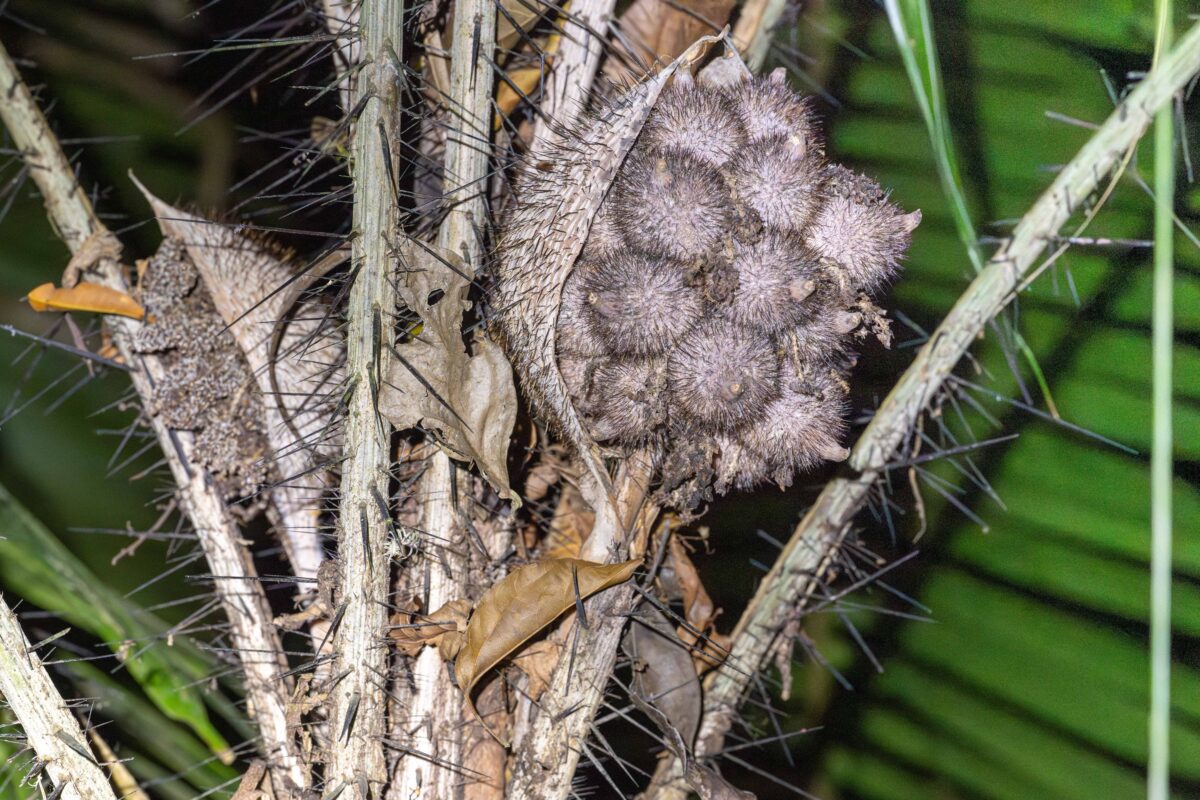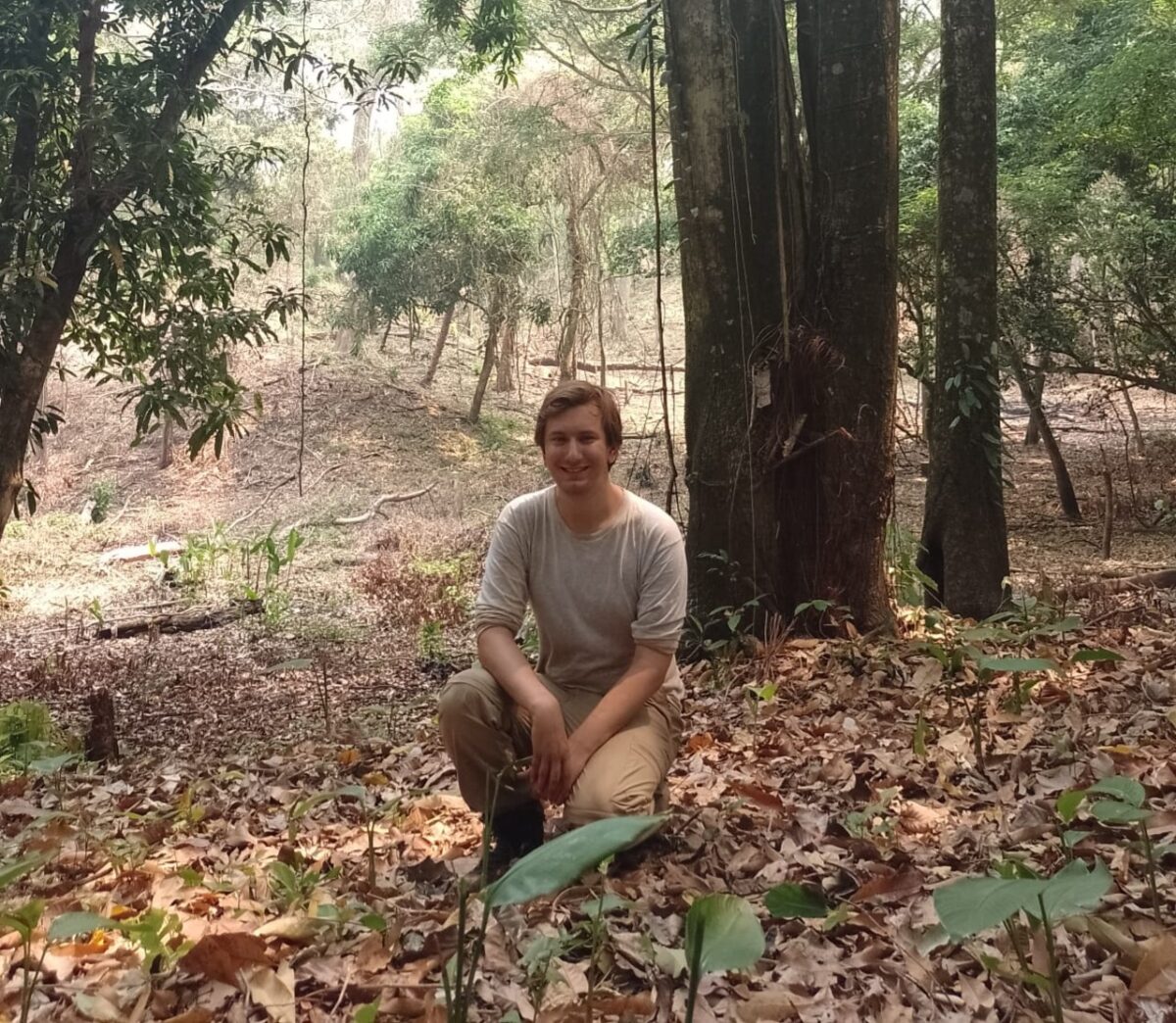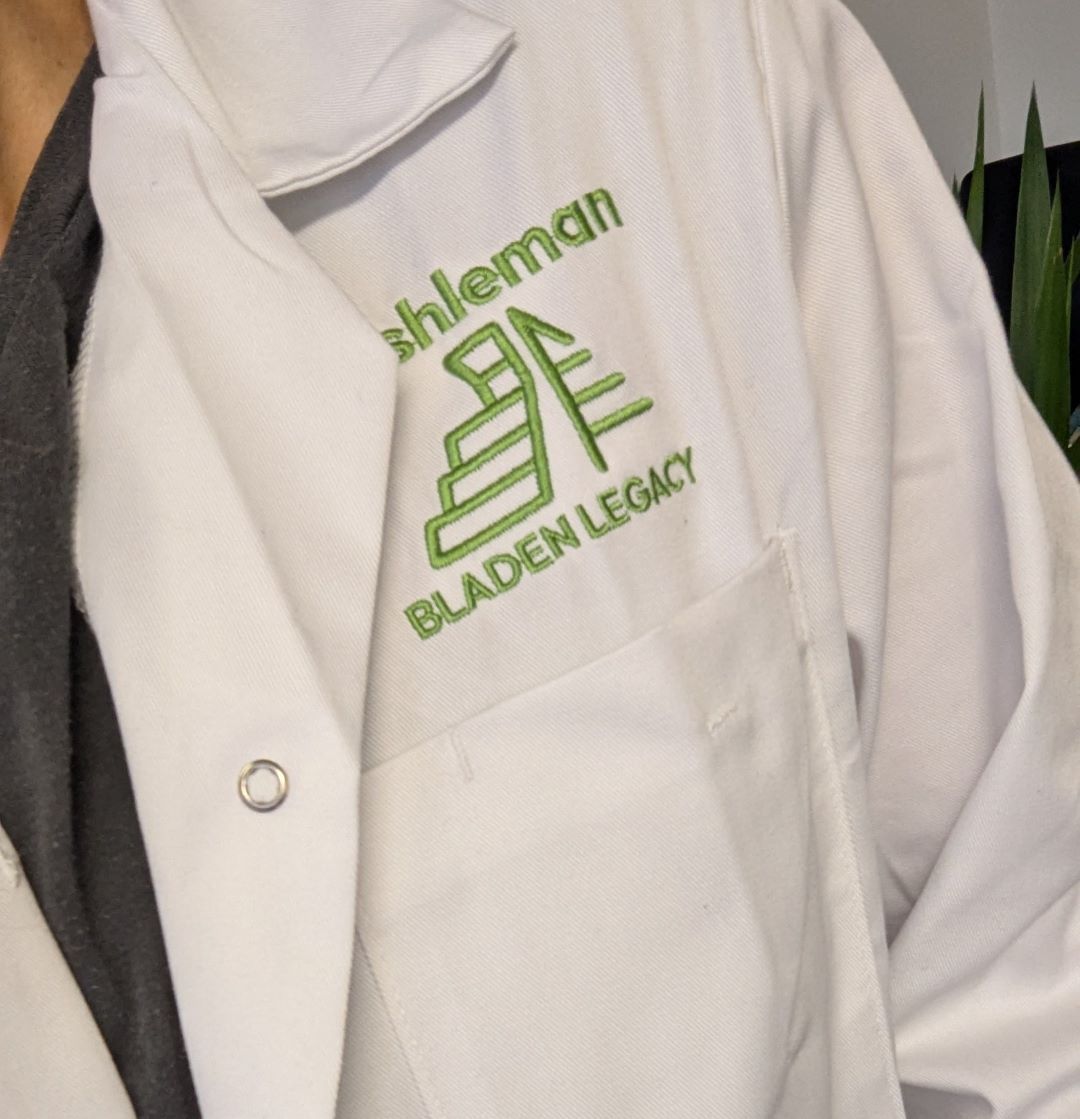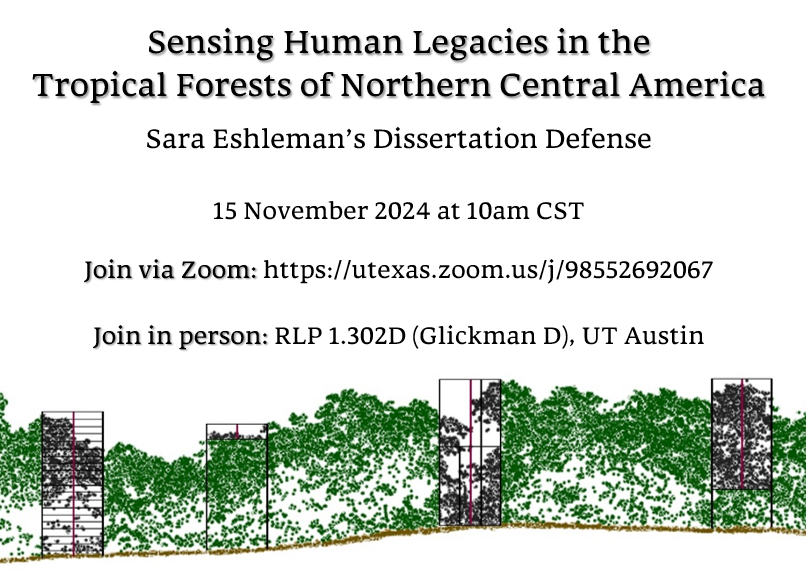The initial results are in and the most abundant tree in the botanical plots from the 2024 field season is a tie between Astrocaryum mexicanum and Pouteria sapota – both totalling 209 stems above 5 cm dbh (diameter at breast height). Meanwhile, the species with the highest total basal area was Dialum guianense.
Astrocaryum mexicanum (pictured) is a palm with spines that have pricked more than a few tropical researchers. The palm heart can be eaten, but its uses are not as well-documented as the other two species that came out on top. Pouteria sapota, also known as mamey, has large, nutrient-rich fruits. They are a well-known food source in these tropical forests. Dialum guinanense, commonly known as ironwood, also has edible fruits, but it is best known for its dense wood that has been used for construction since prehistoric times.





